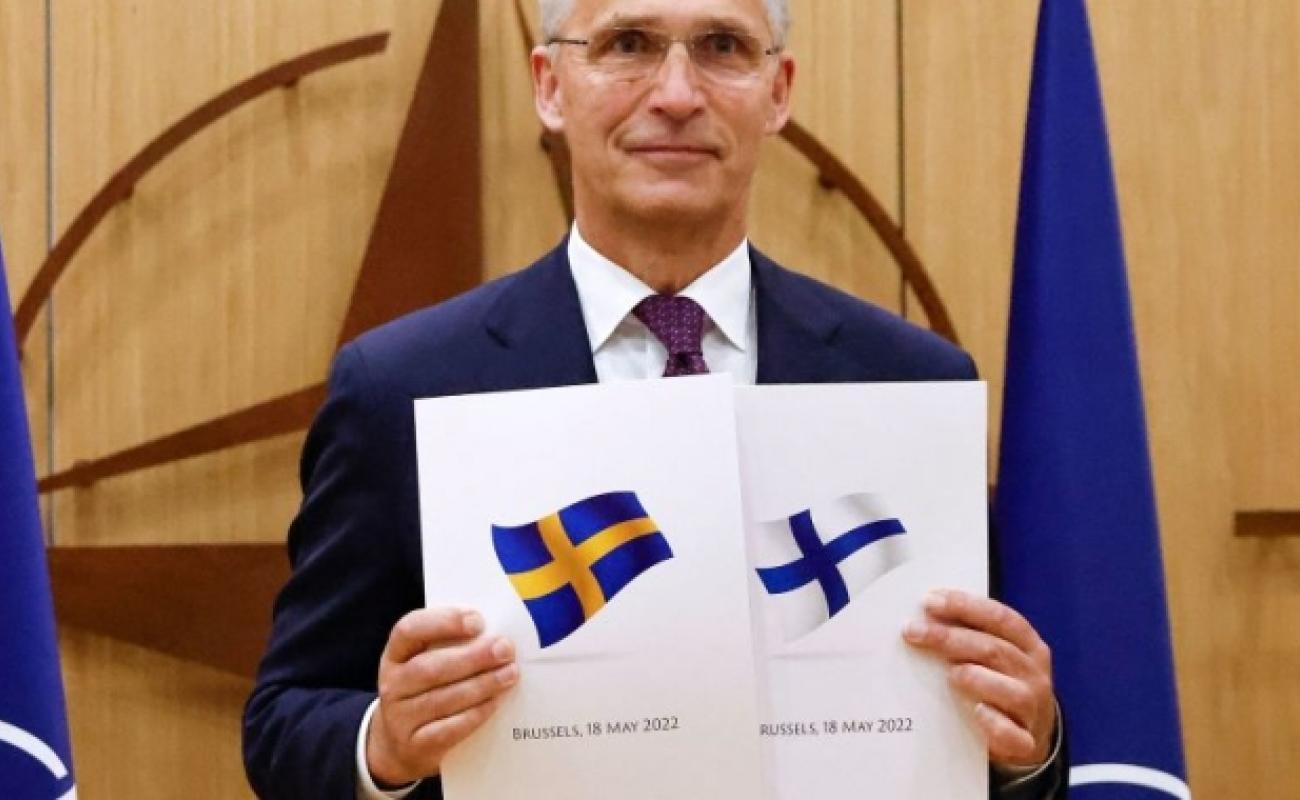Putin desperately needs a "frozen conflict". Why the US must overcome Russia's continued war

Scandinavian countries intend to seriously prepare for the threat of a Russian attack, says analyst Pavlo Baev. The West should start from that and not weaken its anti-Russian efforts.
Russian propaganda, talking about the war against Ukraine, illogically but deliberately combines three different narratives. First, President Vladimir Putin insists that the goals of his "special military operation" remain unchanged. Ukraine must be "neutralized", and a pro-Russian government will be installed in Kiev. Second, Putin has repeatedly confirmed his willingness to participate in peace talks, accusing Kiev of sabotaging the process and explaining that such talks can only take place under the condition of Ukraine's capitulation. Third, and perhaps most ambiguously, the Kremlin is sending signals about a possible "freezing" of hostilities, while asserting that Russia will never give up its imperial "conquests." In this context, recent reports that Moscow is signaling to the West that it is ready for peace talks ring false.
The first and second narratives are intended primarily for the domestic audience. Putin is trying to reach both the "patriots" who are inciting war and the silent majority who increasingly want an end to the war. The strength of this advantage is emphasized by the long queues of potential voters ready to support Boris Nadezhdin, the only candidate in the upcoming presidential elections, who announces his slogan: "No war!".
The third plot is designed in part to appease China, which is occupying an increasingly dominant position in bilateral relations with Moscow. However, Russian ideas about a "frozen conflict" in Ukraine are primarily aimed at inflaming differences among Kiev's Western partners, who are forced to step up their support for the continuation of the long-standing war. Kremlin propaganda likes to empower any voice in the West that doubts the need to bear this burden. Moscow hopes to split transatlantic unity by exploiting signs of "Ukraine fatigue" among Western politicians and analysts who are leaning toward a compromise solution.
Statements by the leaders of northern Europe and the Baltic states, which emphasize the need to invest more money in preparations for a possible direct confrontation with Moscow, belie Russian reports of weakening Western resolve. Swedish Defense Minister Karl-Oscar Bolin was the first to say it publicly, claiming that Sweden's entry into NATO will not prevent the Russian threat. Norwegian Defense Minister General Eirik Kristoffersen and Estonian Prime Minister Kaja Kallas backed up Bolin's warning with accurate assessments of the Russian threat. For its part, Finland firmly supports the consolidated position of the Nordic countries and the Baltic states. The leading candidates in Finland's current presidential election agree with a proposal to strengthen their shared border with Russia and say border ties can only be restored if Moscow abandons its imperial ambitions.
The essence of this collective opinion is not that war with Russia is inevitable. As for the perspectives of the Northern European and Baltic countries, it is pointed out that any "freezing" of hostilities in Ukraine will give Moscow time to strengthen its advanced forces and rebuild its badly damaged military machine. Europe's determination to eliminate all vulnerabilities was demonstrated by the large NATO exercise "Resistant Defender-24". Moscow, which had to cancel the Zahid-2023 exercise last year, cannot show such a show of force.
The joint military exercises are taking place against the background of the European Union's upcoming debate on whether to approve another aid package for Ukraine. The final decision will be made at a special summit of the European Council on February 1, where objections from the Hungarian government will likely be overcome. A positive result from Ukraine's European partners could prompt the US Congress to break the deadlock over a complex $60 billion financial package for Ukraine. It could also give new impetus to the channeling of frozen Russian financial resources into the reconstruction of Ukraine.
These events will gradually change the dynamics of the war. If Kiev is currently struggling with shortages of artillery shells, air defense systems, manpower and long-range assets, in a few months an infusion of new aid will allow Kiev to prepare adequate training and equipment for new Ukrainian battalions recruited under expected plans to pass new mobilization legislation in Ukraine. Such a turn of events will give convincing force to the peace plan of the President of Ukraine, Volodymyr Zelensky.
